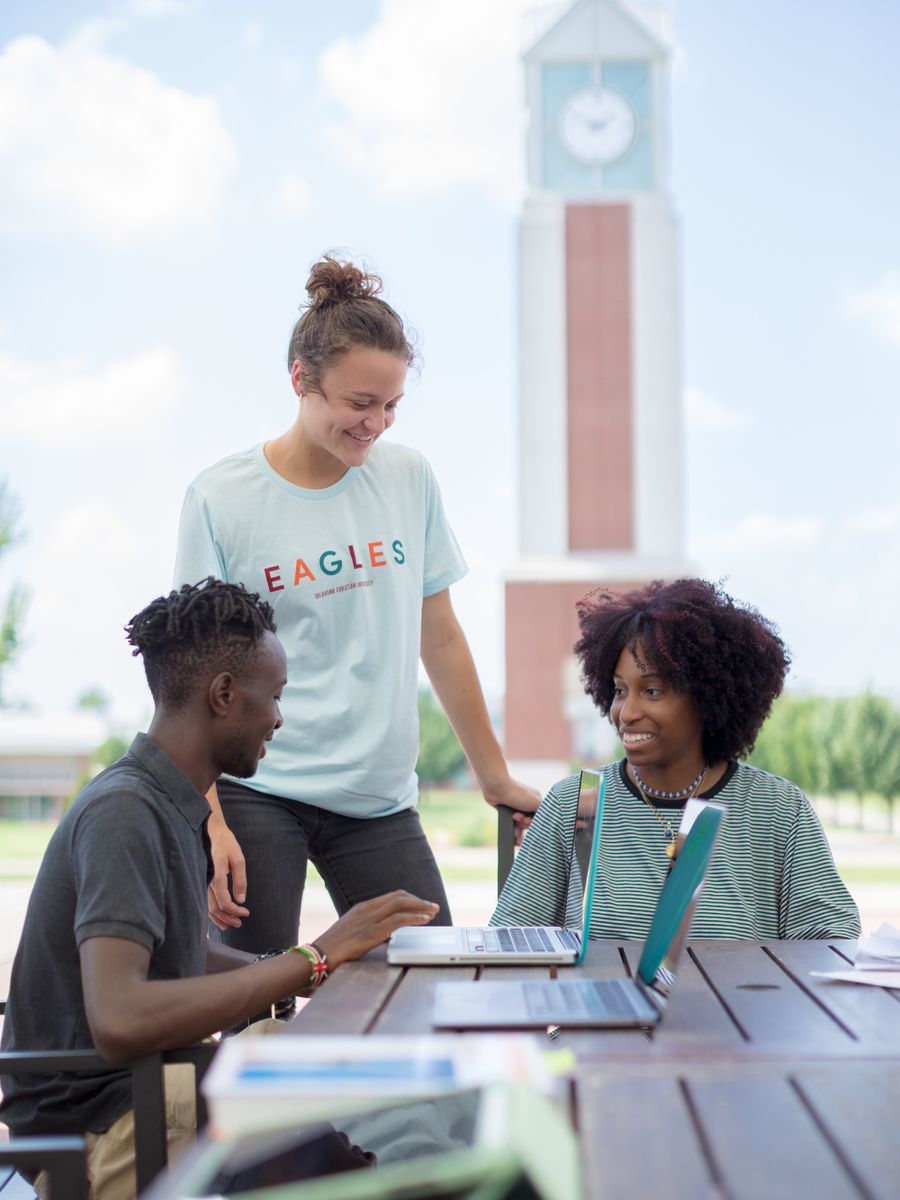Crime prevention has been defined as anticipating, recognizing and appraising a crime risk, and then initiating some action to remove or reduce that risk. It’s an unfortunate fact that crime does occur on college campuses nationwide.
The CAMPUS POLICE DEPARTMENT is required by law to investigate and make public any crimes committed on the campus. Our CAMPUS POLICE staff also wants to ensure that all staff, faculty and students are aware of our involvement in crime detection and prevention. Our success is greatly increased when faculty/staff and students get involved and assist with crime prevention and detection. CAMPUS POLICE offers preventative patrol by CLEET-certified Law Enforcement Officers and 24-hour on-call protection.
We encourage quick reporting of criminal incidents, no matter how small or insignificant they may appear. Victims have the right to expect and demand proper investigation of any crime, and their involvement and cooperation are vital to each case. All crimes are investigated immediately and thoroughly. Follow-up investigations will continue to collect other information and evidence to identify and apprehend the offenders. When caught, The CAMPUS POLICE DEPARTMENT works in partnership with the Oklahoma City Police Department and the Oklahoma County court system to prosecute the offenders.
There are steps you can take to avoid becoming a victim and to ensure your personal safety.
Protecting your property can be the first step in avoiding victimization.
Steps include:
- Lock your door whenever you leave your room for ANY length of time or when you are sleeping. Always lock all car doors.
- Never prop open any door
- Do not leave valuables or cash in plain view. Protect all valuables in your room, such as wallets, jewelry, credit cards, cash and computers.
- Make copies of all your credit cards and other valuables in your wallet.
- Protect your books and put your name or identifying marks in several locations.
- Report all losses and incidents to the CAMPUS POLICE DEPARTMENT.
- Do not loan your keys to anyone, do not hide your keys outside your apartment/room, or put your name or address on your keys.
- Take all valuable items home with you during vacations or breaks.
- Do not send cash through the mail.
- Never leave your belongings unattended in public areas or the laundry area.
- During semester check-in and check-out, lock your car between trips inside the residence hall.
- Lock your bicycle in the bicycle rack.
- Record all your valuables (with serial numbers) on a “Dorm Contents Inventory” sheet.
The second step in avoiding victimization is protecting your personal safety.
There are several ways and areas that you can take steps in your home, when driving, or while out walking or jogging. These ways are outlined below.
When at home, in an apartment or residence hall:
- Keep your room door locked when you are napping or sleeping.
- Never let unauthorized persons come into your room, enter residence halls or enter apartment security doors. Always ask to see proper identification. Any suspicious activity should be reported to the police immediately.
- Never prop open inside or outside doors.
- Do not hide keys outside of your room or apartment. Do not put your name or address on your keys.
- Avoid working or studying alone in a campus building.
- Never dress in front of a window. Draw blinds or curtains after dark.
- If you are awakened by an intruder inside your room, do not attempt to apprehend the intruder. Try to get an accurate description of the intruder and then call the police.
When driving:
- Carry your car keys when approaching your vehicle so you can enter quickly.
- Lock your doors and keep windows rolled up whenever possible. Always check underneath your car and in the rear seat for intruders before entering your automobile.
- Drive on well-traveled and well-lit streets.
- Never hitchhike, and never pick up hitchhikers.
- If someone tries to enter your stopped vehicle, sound the horn and drive to a safe area such as a police station.
- If your vehicle breaks down, ask any person who stops to help to call the police. Do not allow any person access to you or inside your car. Roll down your window no more than an inch. Be aware that an accident may be staged to provide the other driver an opportunity to commit a criminal act.
- Leave enough room between your car and the one ahead of you so you can drive around it if necessary.
- Call ahead when driving to your home or apartment late at night and have someone watch you walk from your car to the residence.
While walking or jogging:
- Avoid walking or jogging alone, and walk in groups of two or more at night.
- Avoid dark or vacant areas. Walk along well-lit routs. Avoid vulnerable, no exit places.
- Be alert to your surroundings. If you suspect you are being followed: Run in a different direction, go to the other side of the street and yell for help, or move quickly to a lighted area, a group of people or an emergency phone.
- Have your keys ready when returning to your residence hall or apartment. Keep your personal or valuable items concealed and close to your body.
- Report suspicious persons or behavior to the police.
Steps to follow to ensure the safety of your bicycle:
- Register your bicycle with the Director of Apartment Operations located at the Nowlin Center and include it in the Dorm Contents Inventory list.
- Lock your bicycle at a bike rack.
- Use a high-quality “U” bolt lock and/or a quality chain or cable and lock.
- If your bicycle is stolen, contact the CAMPUS POLICE DEPARTMENT immediately.
- Steps to follow if you see suspicious activity or persons:
If you see any suspicious activity or person(s) on or near the University campus, it is your responsibility to call the CAMPUS POLICE DEPARTMENT at (405) 425-5500. Do not assume what you see is an innocent activity or that another individual has already called the police. Do not worry about being embarrassed; rather, think about what could happen if you do not act.
Suspicious persons or activity may include:
- Person(s) loitering about at unusual hours and locations.
- Person(s) running, especially if something of value is being carried.
- Person(s) exhibiting unusual mental or physical symptoms. Person(s) could be under the influence of drugs or needing medical or psychiatric assistance.
- Person(s) carrying property that might be suspicious depending on the circumstances.
- Person(s) going from room to room trying door knobs.
- Open or broken doors or windows.
- Unusual noises-anything suggestive of foul play, danger, or illegal activity.
- Person(s) sitting in parked vehicles for an extended period of time.
- Vehicles driving slowly in a parking lot at night.
- Any person(s) not affiliated with the University community.
Do not assume the person(s) may be a visitor(s) or University staff that you have not seen before. Call the CAMPUS POLICE DEPARTMENT immediately.
For off-campus options, you may call Oklahoma City Police 9-911. Campus Police and the Oklahoma City Police Department have a mutual aid and working agreement. Each department augments the other within their jurisdictions during mutual investigations, arrests and prosecutions. CAMPUS POLICE personnel attend regular meetings with local law enforcement agencies to exchange ideas and problems that may be of concern to the university community.

